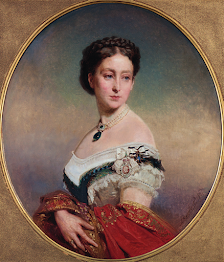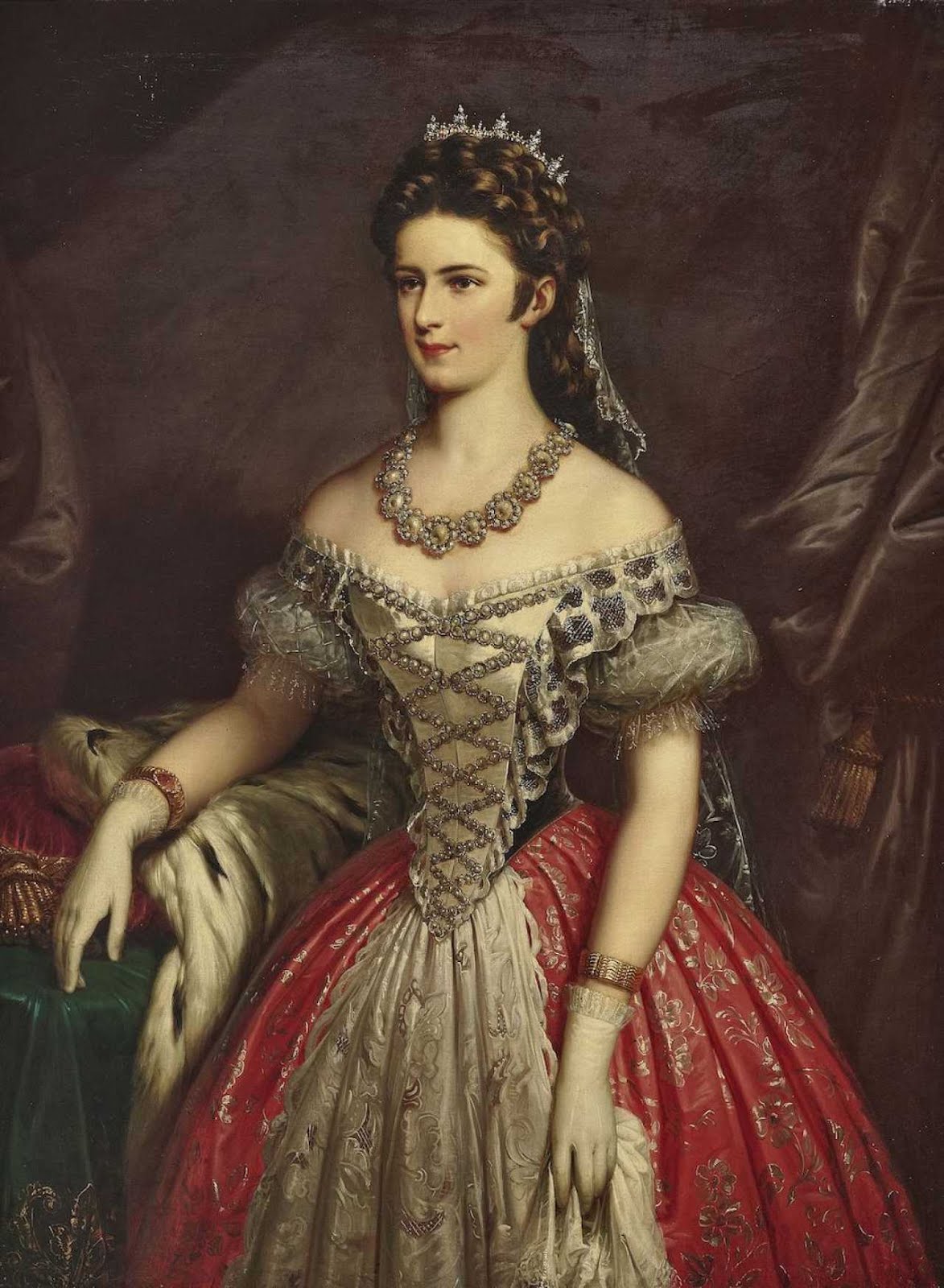Long ago, there was a prince who fell deeply in love with a princess. He wanted to marry her, however, his love was unreciprocated. The princess never returned his affections, as she had fallen in love with someone else. The prince married another princess, but he never truly forgot about his first love.
The story between the youthful Crown Prince Wilhelm of Prussia (the future Kaiser Wilhelm II of Germany) and his affection for his beautiful cousin, Princess Ella of Hesse (the future Grand Duchess Elizabeth Feodorovna of Russia) was like from a fairy tale. But unlike fairy tales, the story did not have a happy ending.
The Crown Prince was then a 16-year-old student, completing his studies at the University of Bonn. During the weekends, he would pay a visit to his Aunt Alice in Darmstadt. It was during these visits that he started falling love with Ella, who was only 11 years old at that time. He wrote to his mother:
"Cousins look very nice, Victoria full of mirth, had a very good complexion; Ella--who is my special pet--is much grown and is exceedingly beautiful, in fact she is the most beautiful girl I ever saw. She is more quiet than Victoria but still very intelligent. She and I both love each other warmly… I think that, if God grants that I may live till then I shall make her my bride once you allow it."
Wilhelm loved spending time with Ella and his affections for her only increased as the time went by. He wrote about her to his mother with tenderness and she was one of the few people who could quiet his exuberance. Wilhelm's grandmother, the Empress Augusta, was very keen about their relationship. She encouraged Wilhelm's affection for Ella and was thrilled with the prospect of them getting married. However, Wilhelm's mother, Victoria, was not enthusiastic about the match. She thought that Wilhelm and Ella were too closely related. Furthermore, she was not very fond of Ella, and had other marriage plans for his son. Lastly, Ella herself did not have the same feelings as Wilhelm. She was flattered of the attention, but this is not enough to make her agree for a marriage. And so she politely refused Wilhelm's offer of marriage.
Wilhelm was hurt; he later married Princess Augusta of Schleswig-Holstein, and Ella married Grand Duke Serge of Russia. But it was said that he never truly forgot about her and kept a photo of her on his desk until his death. Years later, when Wilhelm was an old man, he wrote a letter to his grandson who wanted to marry a lady below his rank. He wrote how he had to choose between love and duty:
"You will no doubt well know that only few sovereigns in the world are lucky enough to be able to marry the object of their first love. For example, in my youth exactly the same thing happened to me, when my parents refused to allow me to marry my cousin Ella of Hesse. A relationship which my grandmother Kaiserin Augusta especially fostered and which I had begged my parents from the bottom of my heart to permit. My heart bleeding, I obeyed the severe command of duty."
Since Wilhelm and Ella's relationship was one of history's many 'what ifs', it can be quite amusing to ponder about what could possibly happen to them, to Germany and to the whole world if they got married.
Quotes from:
Young Wilhelm: The Kaiser's Early Life, 1859-1888
by John C. G. Röhl






























